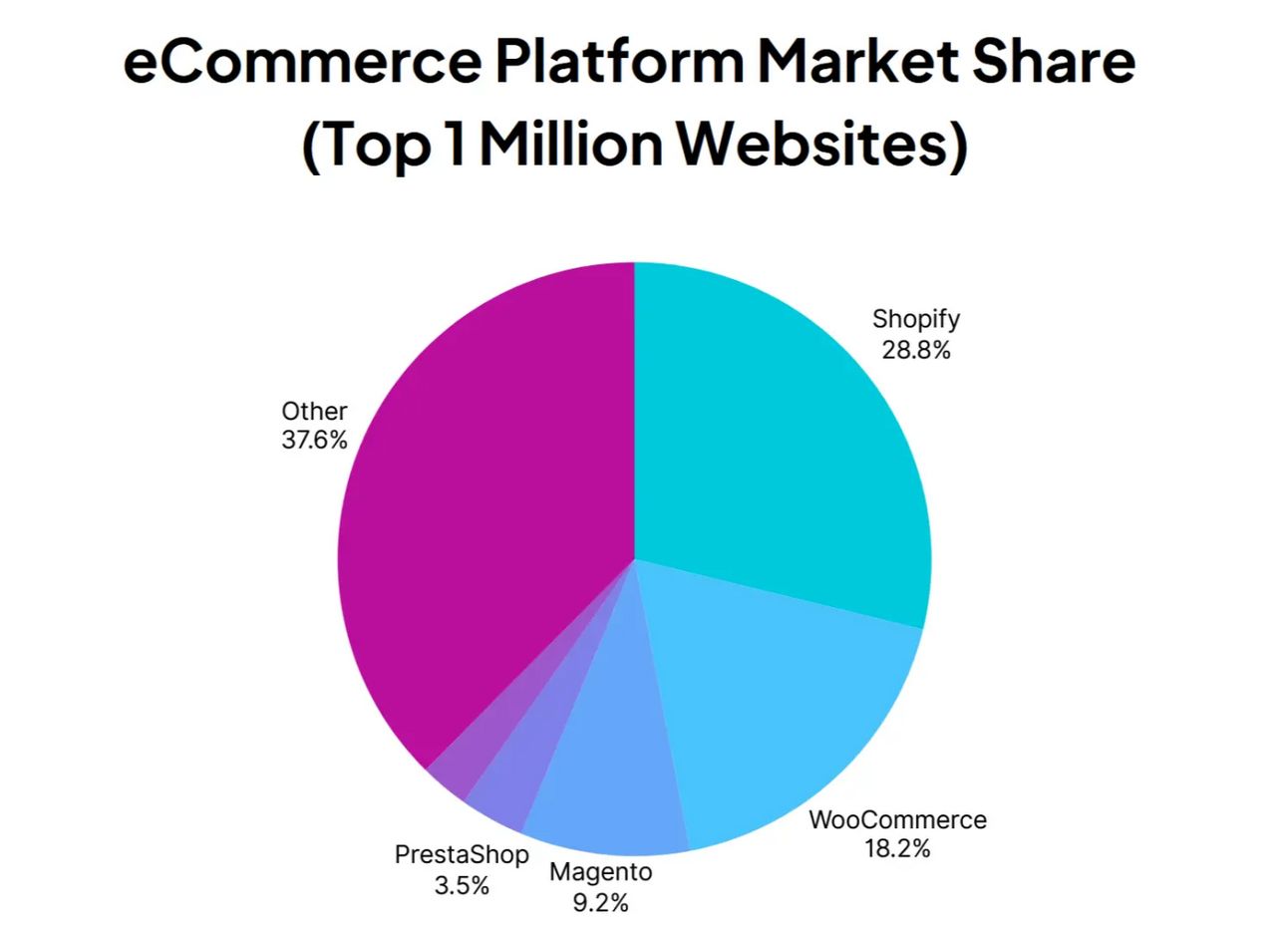- XENA Insider
- Posts
- How Shopify Stacks Up Against Other eCommerce Giants
How Shopify Stacks Up Against Other eCommerce Giants

How Shopify Stacks Up Against Other eCommerce Giants
How Does Shopify Compare to Other eCommerce Platforms?
Choosing the right ecommerce platform is like picking the perfect pair of shoes. It needs to fit well, look good, and support you through your journey.
With numerous options available, how does Shopify stack up against other ecommerce platforms?

Mobiloud
Ease of Use
One of the most critical factors when choosing an ecommerce platform is ease of use. Shopify leads the pack with its intuitive interface and user-friendly design.
Even if you're not tech-savvy, you can set up a professional-looking store in no time.
Shopify: Offers a drag-and-drop builder, making it easy for anyone to create a stunning store without any coding knowledge.
WooCommerce: While powerful, it requires a WordPress site and some technical know-how, which can be a hurdle for beginners.
BigCommerce: Similar to Shopify in terms of ease of use but can be slightly more complex due to its extensive feature set.
In summary, if you’re looking for simplicity and speed, Shopify is a strong contender.

Rivalmind
Customization and Flexibility
Customization is crucial for creating a unique online presence. Here’s how the platforms compare:
Shopify: Provides a wide range of themes and templates, both free and paid. However, deeper customization may require knowledge of Liquid, Shopify’s templating language.
WooCommerce: Being open-source, it offers unparalleled customization. If you can dream it, you can build it—provided you have the technical skills.
BigCommerce: Offers robust customization options but may not be as flexible as WooCommerce.
If you need extensive customization and have the technical skills, WooCommerce might be the way to go. For those who want a balance of ease and flexibility, Shopify is a solid choice.
SEO and Marketing Tools
Visibility is key to ecommerce success. Here’s how these platforms support your SEO and marketing efforts:
Shopify: Comes with built-in SEO features and integrates seamlessly with various marketing tools. It also supports blogging, which is great for content marketing.
WooCommerce: Offers extensive SEO capabilities, especially when combined with WordPress plugins like Yoast SEO.
BigCommerce: Provides strong SEO features and marketing tools, but some users find it less intuitive than Shopify.
For those who prioritize SEO and marketing, Shopify offers a comprehensive suite of tools that are easy to use.
Payment Processing and Fees
Payment processing can make or break your ecommerce experience. Here’s the breakdown:
Shopify: Supports numerous payment gateways, including its own Shopify Payments, which eliminates transaction fees. However, using third-party gateways incurs additional fees.
WooCommerce: Offers flexibility with payment gateways but requires plugins, which can add to the complexity.
BigCommerce: No transaction fees and supports a variety of payment processors, making it a cost-effective option.
If you want to avoid extra fees and have a straightforward payment process, Shopify’s integrated solution is appealing.
Scalability and Performance
As your business grows, your platform should be able to scale with you:
Shopify: Known for its reliability and ability to handle high traffic volumes. It’s a hosted solution, so you don’t have to worry about server maintenance.
WooCommerce: Highly scalable but requires significant technical management as you grow.
BigCommerce: Also highly scalable with robust performance metrics but can be pricier at higher tiers.
For businesses looking for hassle-free scalability, Shopify is a reliable choice.
Choosing the right ecommerce platform depends on your specific needs and technical capabilities. Shopify offers a balanced mix of ease of use, customization, SEO tools, and scalability, making it a strong contender for many businesses. However, if you require extensive customization and have the technical know-how, WooCommerce is worth considering. BigCommerce is another solid option, particularly for those looking for a feature-rich platform without transaction fees.
What’s Next?
Taking your eCommerce business to the next level starts with the right strategy. At Xena Intelligence, we specialize in helping brands optimize their Amazon listings and ad campaigns, unlocking their full potential in the competitive digital marketplace.
Our expert team can help you optimize your Amazon listings and ad campaigns, ensuring your business reaches its full potential.
FAQs
1. Is Shopify better than WooCommerce?
It depends on your needs. Shopify is easier to use, while WooCommerce offers more customization.
2. Does Shopify charge transaction fees?
Shopify charges transaction fees if you use third-party payment gateways. Using Shopify Payments eliminates these fees.
3. Can I switch from WooCommerce to Shopify?
Yes, but it requires careful planning to migrate your data and settings.
4. Is BigCommerce cheaper than Shopify?
BigCommerce doesn’t charge transaction fees, which can make it cheaper in the long run, but its higher-tier plans can be more expensive.
5. Which platform is best for SEO?
WooCommerce offers extensive SEO capabilities, but Shopify also provides robust SEO tools that are easy to use.
TL;DR
Choosing the right ecommerce platform is crucial for your business.
Shopify excels in ease of use, customization, SEO tools, and scalability.
WooCommerce offers unparalleled customization for those with technical skills, while BigCommerce provides a feature-rich, cost-effective solution.
Each platform has its strengths and weaknesses, so consider your specific needs before making a decision.
Choosing the right platform is just the beginning. Let Xena Intelligence help you maximize your eCommerce potential with tailored strategies that deliver results.
Written by Akhil Suresh Nair, the founder & CEO of Xena Intelligence - the AI tech for eCommerce brands.
